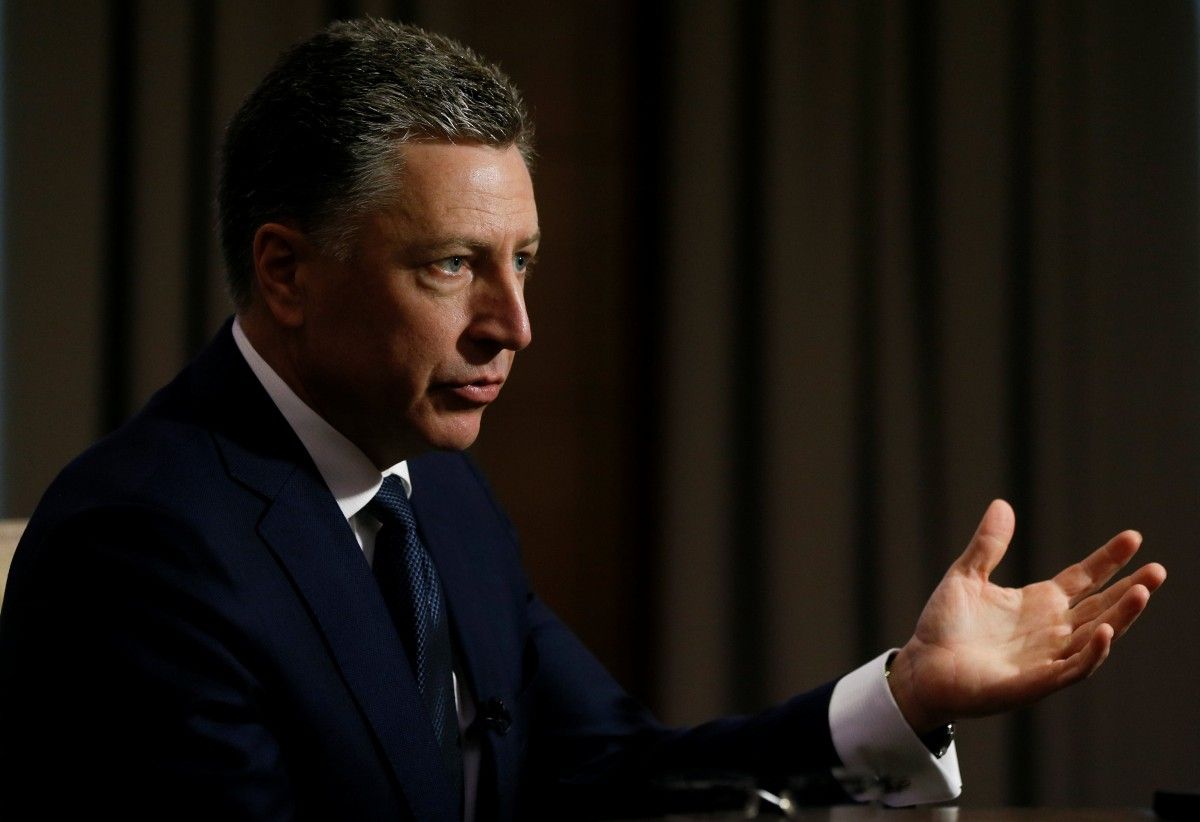
Kurt Volker: Russia has a 100% command and control of the forces... it has control of the so-called people’s republics. So, this is a 100% Russian-led operation
Special Representative of the U.S. Department of State for Ukraine Negotiations Kurt Volker in an exclusive interview with UNIAN explained why Ukraine needed to retain the special status of Donbas, told about the progress in negotiations with Russia on the deployment of a UN peacekeeping mission, and revealed why he had met with Ukraine's opposition leaders during his latest September visit.
Ukrainian President Petro Poroshenko has submitted a draft bill to the Verkhovna Rada, Ukraine's parliament, to extend the law "On the special order of local self-government in certain areas of Donetsk and Luhansk regions.” What's your comment on that?
Well, I think it is a very positive step. As you know I think it’s important that the Rada extend the law on special status. If it did not, it would be simply a gift to Russia. Russia would use this as an argument against Ukraine saying that Ukraine is not doing its share under the Minsk agreements. And in addition, the situation the day after the extension is passed would be exactly the same situation as we have today. So there is no cost to Ukraine, there’s no loss in any way, but is does prevent giving Russia this gift, that argument to use against Ukraine. And that’s especially important when you consider the issue of maintaining EU sanctions against Russia. There are many countries in the EU now that would like to lift sanctions and they would seize on any argument to say that Ukraine is not doing its share. So, preventing giving Russia this gift and preventing those kinds of arguments in the European Union are important for keeping sanctions in place as well.
Would you suggest that Ukraine take any additional steps towards the implementation of the Minsk accord if Russia clearly does nothing?
Well, there’s a few things that are in the Minsk agreement that I think could be helpful. For instance, it does talk about the withdrawal of heavy weapons from different areas around the ceasefire line, and there are a couple of places where the Russian armor and the Ukrainian armor are very close to each other, and it does increase the prospects for continued ceasefire violations and fighting where Russians will fire at Ukrainian forces. So, I think looking for ways in which we can thin out along the ceasefire line as is stated in the Minsk agreements is a good idea. I know that Russia has not done this itself in many places as well. So, I understand the concern that some Ukrainian leaders will have that why these should be unilateral actions, why we should pull away when Russia doesn’t and may be going forward if we pull back. All valid concerns. And yet at the same time, I think, positioning Ukraine where it can say we are doing what we said we would do – and it is Russia that is blocking the implementation of this –I think that is a very powerful statement and position to adopt.
Is it just right enough to extend this law? I mean what we need to do in order to persuade Russia to agree to make further steps, namely to withdraw troops from close proximity along the contact line?
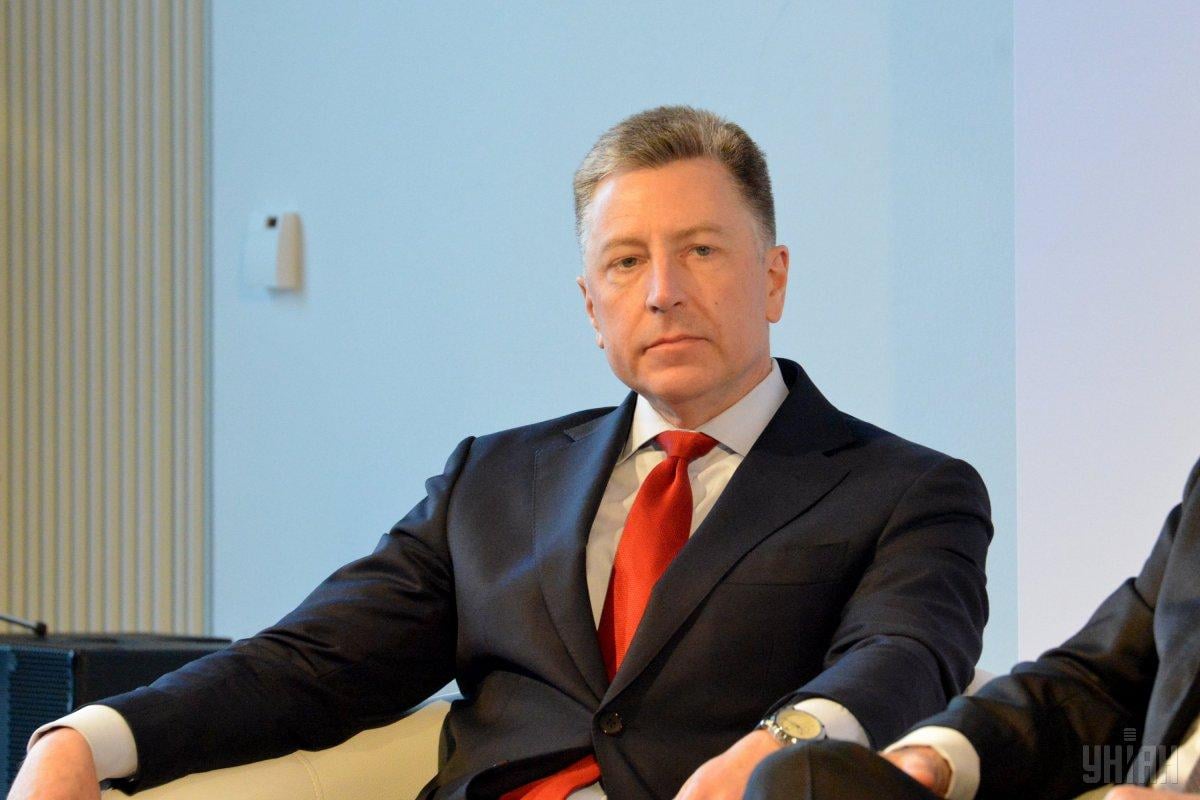
We are doing everything we can. The first thing is to try to make crystal clear: Russia bears responsibility for the conflict in Ukraine. This is something that had been papered over for years, and we’ve tried in the way we discussed this in our diplomatic contacts and working with France and Germany and Ukraine and EU and NATO to be very, very clear – Russia has a 100% command and control of the forces. It pays for the contract forces, it has control of the political entities that are there, the so-called people’s republics. So, this is a hundred percent a Russian-led operation. The second thing is to keep in place the sanctions on Russia. We’ve lifted the arms embargo on Ukraine that the U.S. had imposed so that we are now willing to treat Ukraine like a normal country that has normal defense needs. I think that's very important, making clear to Russia that it's not going to be gaining anything more here. We are hoping to deter new aggression and demonstrate that the existing aggression is only costing Russia. And the most important cost to Russia is that they are driving Ukraine away. I think what Russia wants is Ukraine that is close to Russia, being part of the same Slavic family given an affinity between the cultures and languages, and so forth. And that is being lost. And that is being lost because of Russia’s invasion and occupation, and continued killing of Ukrainians. And as long as that continues, I think the Ukrainian people have forged a much stronger identity, a stronger national unity, a stronger vision of their future as part of West and a deep skepticism toward Russia. I think that's especially true for the younger generation. So, Russia is producing exactly the opposite of what it was. And I think if Russia begins to really understand that there’s hope that they look for a way to end the conflict which would be for the benefit of everybody.
Can you clarify what do you mean saying that “we are hoping to deter further aggression” from Russia? What exactly do you mean saying that?
Yes. I think that is the situation now. So, the Ukrainian military due to Ukraine’s own efforts is much, much better today than it was in 2014. And so that already would introduce additional costs to Russia, and inability of Russia to deny its responsibility if it were to launch new aggression this time. In addition to that, the United States and other countries have provided support to Ukraine, including for instance antitank missiles and anti-sniper systems, the technical advisers, training, so the Ukrainian military is better equipped and better capable of responding to Russian aggression, and that would also make it more costly for Russian. And that’s why I believe Russia would in fact be deterred, and say it’s not worth it. It doesn’t mean they are going to leave and it doesn’t mean that Ukraine is capable of taking the territory back militarily – it’s not. No one’s going to defeat Russia. But I think also it would be too costly for Russia to try to move forward at this point.
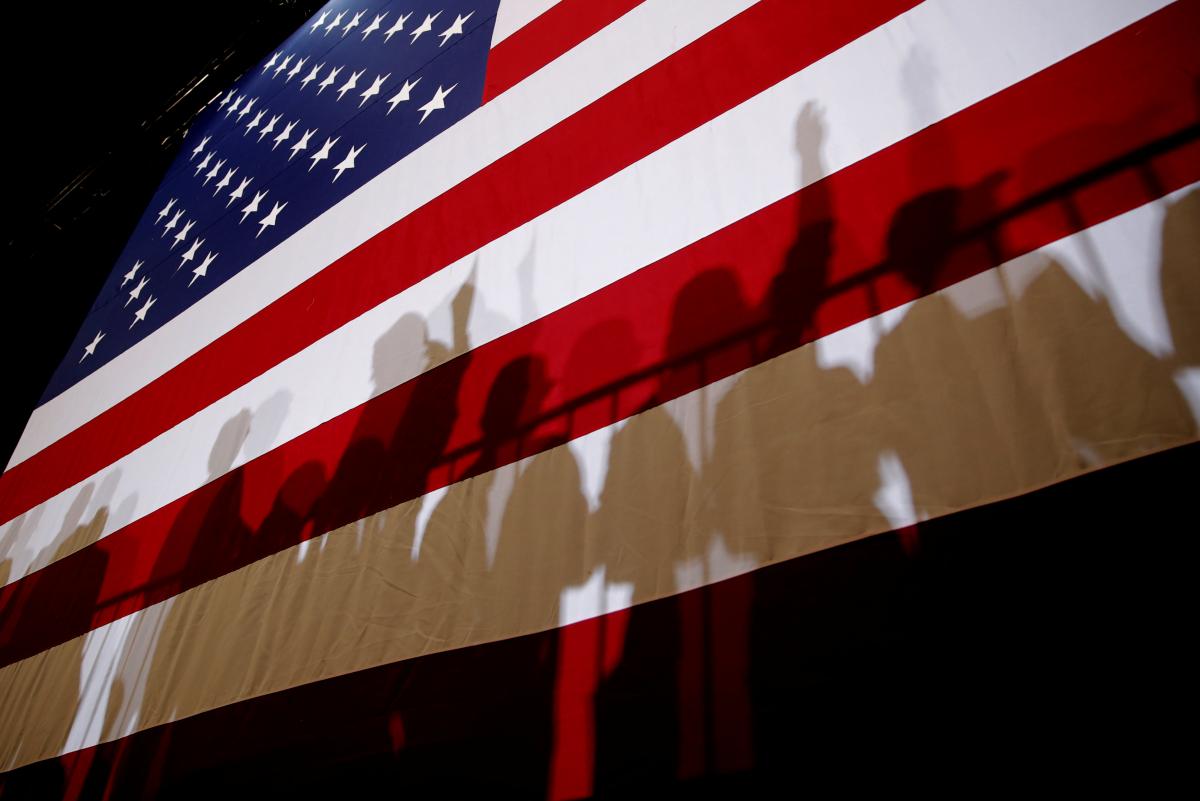
What do you think about the local population there in Donbas at both sides of the contact line? Are there enough efforts from Ukrainian side to reach out to those who are vulnerable?
I very much believe the Ukrainian government can and should do more to support humanitarian assistance and outreach to the populations affected by the conflict on both sides of the line, in the occupied areas as well as the Ukrainian controlled areas. Humanitarian consequences of this war are very, very significant. Ten thousand people have been killed and million and a half displaced. There are problems with the economy collapsing in the occupied areas, with cost of living, access to food, safety and water supplies, environmental damage, freedom of movement, physical security issues such as landmines and unexploded ordnance, access to government services such as access to pensions. There’s so much that is a challenge for the local population. And the government of Ukraine, I believe, should do everything it can to try to reach those people and assist those people. And demonstrate that the only reason that it can’t do so is not its own desire, but because Russia prevents it. That's a very important message for the people in Donbas to understand – that their own government wants to help them, but they are being prevented from Russia.
Recently you may have heard that in the city of Horlivka, which is under Russian-backed militants' control, three young boys had lost their lives as a result of a mine blast. My question relates to the fact that demining process is not happening…
There are areas under Ukrainian control that have not been cleared of landmines. And there are international projects and donors as well as Ukrainian national capabilities to facilitate demining. And I do believe that there’s a lot that can be done even today. Organizations could start clearing areas to make them safer for the civilian population. There are probably other areas under military control that require more care and they may require some legislation from the Rada, and I know the Rada is considering demining legislation. I think it would be very important to pass that legislation and to do what can be done to normalize the situation for the people that live in these affected areas. In the occupied areas, the situation is at least as bad, probably worse. And it is a real challenge to the people that live in the occupied territories. There is very little that Ukraine can do unilaterally to address that, but it should be using the international organizations that are present there, such as Red Cross, UNHCR, and urging the involvement of other non-profit organizations that specialize in demining, to push them to get access to these territories. And again, if they are blocked from getting access to do demining in the occupied area, it’s important that the only reason would be that Russia is not allowing it, not because Ukraine is failing to push the issue anyway.
Recently you said that a peacekeeping contingent has to replace the Russian forces in Donbas, and that this offer is on the desk.
Yes. It is.
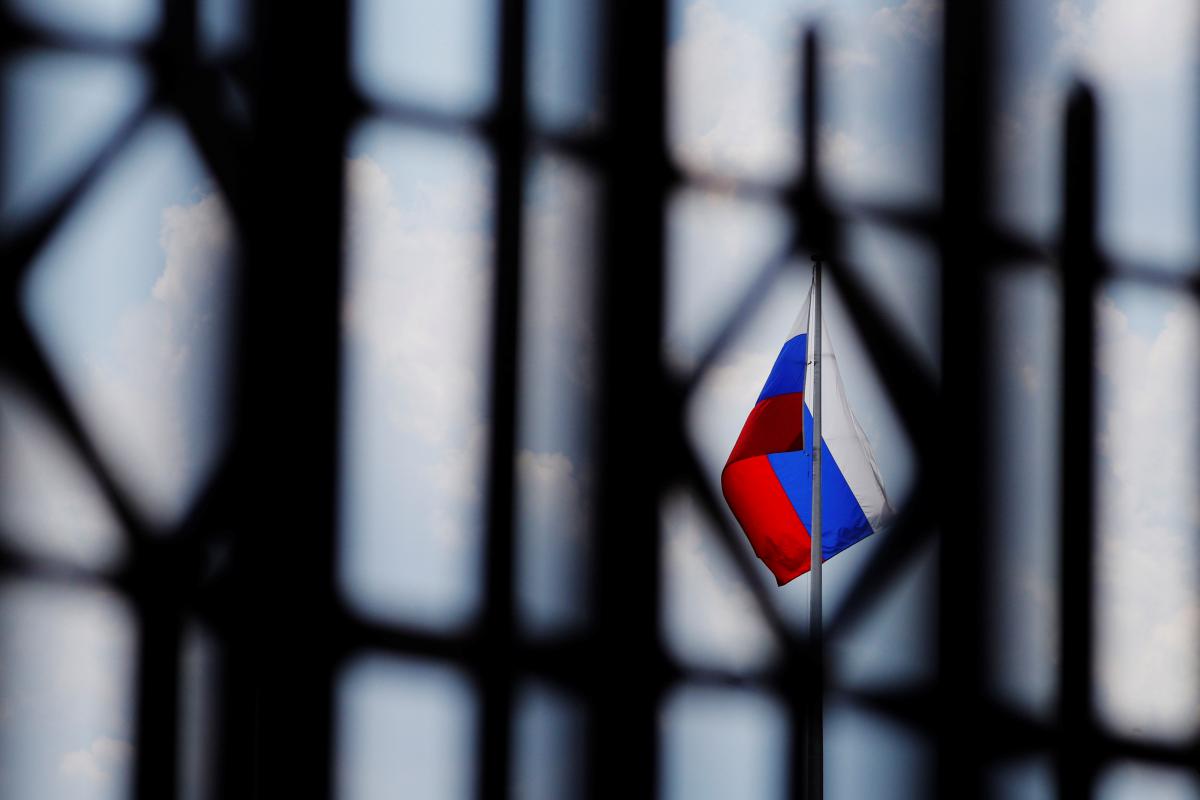
Has the Russian side responded to that position?
So, yes, we are very much prepared to support a UN-mandated peacekeeping mission which would create security in the occupied areas and replace the Russian forces that are there now. This would buy time and space for the Minsk agreements to be implemented. That’s what Russia says that it wants. And if we do to get the Minks agreements implemented then it is a way for the territory eventually to be restored to Ukraine. So, this proposal is very much on the table. Russia has responded by criticizing certain things in the proposal. However they have not put forward their own ideas, none since their original call for a UN protection mission in September a year ago. So, we have heard criticism of our proposal from Russia. We have full support from Germany, from France, from EU, from NATO, Canada, Sweden, and we also have close coordination with Ukrainian government – strong support there. But Russia is the one that has still not moved its position and is not ready to agree.
Do you have any opinion why they not moving forward, why they are not putting up any new proposition?
Yeah. I think very basically, because they don’t want to. They want to keep the conflict alive. They want to keep their forces there. They want to keep two so-called people’s republics in place as political entities that they can use as the shield to obscure Russia’s direct involvement. And they want to wait I believe also to see what happens in Ukraine’s elections. So, I think they've just decided not to do anything at all for the time being, which is a shame because of the tremendous cost that it imposes on the lives of all those Russian speaking people in Eastern Ukraine.
Don’t you think that maybe it is about time to enhance pressure on Russia to find other options to have influence on them?
We are doing it. We have maintained previous sanctions, we have increased sanctions, we’ve helped the EU maintain and increase sanctions. We have lifted the arms embargo on Ukraine. We have been much more vocal publicly about Russia’s responsibilities. We've made clear that we will not recognize Russia’s annexation of Crimea. We put out proposals where they could leave if they want to, but demonstrated that they are the only ones not reaching agreement here. I think we put a lot of pressure on Russia and will continue to do so and continue to escalate that.
Ukrainian foreign minister Pavlo Klimkin said that in terms of deploying UN peacekeeping mission not only the military element is important, but also an international administration and police should also be deployed with the peacekeeping mission. Could you please explain how do you see to make it possible to have all these three components to be deployed in the Donbass?
I did not get the sense that there is a sequence here. But I think the peacekeeping mission is necessary for security. In the Minsk agreements, one of the key things that needs to happen is for Ukraine to hold local elections. And there are not elections for the people’s republics, they need to go away. Its elections for the legitimate local entities that are there – mayor of Luhansk, mayor of Donetsk, oblast administrations… In order for there to be elections, there needs to be an election administration. And then I agree that there needs to be something on the idea of policing as well. The local police in towns and cities seem to be quite competent. But you have the armed militias that have been there for the past few years. And as those go away you may need some coordination, probably from the OSCE, with the local police services. And so I think that’s an area that probably has to be developed as well. But the key thing though is getting a peace mission on the ground so that you create an environment of overall security.
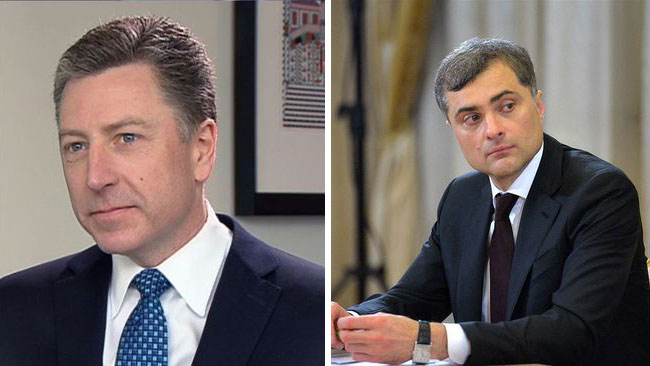
How about your communication with the Russian side? We all know that there’s no progress in terms of holding a meeting with Putin's aide Vladislav Surkov. Do you still have some kind communication in order to speak with the Russians?
Yes. We have been back and forth in correspondence. You know I proposed a way a peacekeeping force could be deployed. As I said the Russian side, Surkov, has sent back some disagreements with certain aspects of that. They have not come back with their own proposals yet, and we are continuing to correspond a little bit. We are always ready to meet and talk if that's helpful and productive. Thus far, we want to see a little more progress and substance to make sure that it would be a productive meeting.
If there any understanding for your next personal possible meeting with Surkov?
Not yet. But we are still talking about that.
I know that the last time you’ve been in Kyiv last month you met not only Ukrainian officials, but those who represent Ukrainian opposition and who are willing to run for presidency next year, I’m talking about Anatoliy Hrytsenko and Yulia Tymoshenko. Can you say what you discussed with them?
Well, the same thing that I discussed with everybody. It’s important for the U.S. to communicate with everybody. It is a diverse country, it’s democracy, there's political parties. And so, it's important that I communicate with everyone to let them know our perspective on the conflict, what our actions and support have been, what our views are on some of the issues such as special status law. So, the same with everybody and the principles that we support. Because no matter how Ukrainians vote, whatever the government is, we're still going to have the same set of problems and issues to deal with and we are committed to working together with all Ukrainians to try to address those.
What is your the main expectation by the end of the year in the peace negotiation process?
Well, it’s what we were talking about, what Russia’s position. Russia so far does not seem to be ready to accept this and ready to move. So my expectations are that we are nowhere close to this [peacekeeping mission] being deployed.
Vitaliy Sayenko

